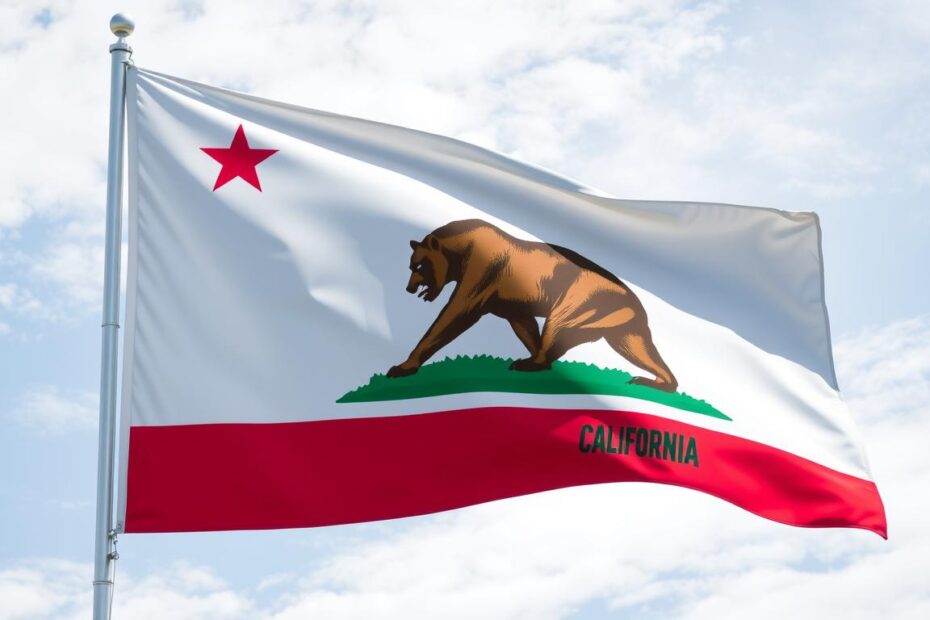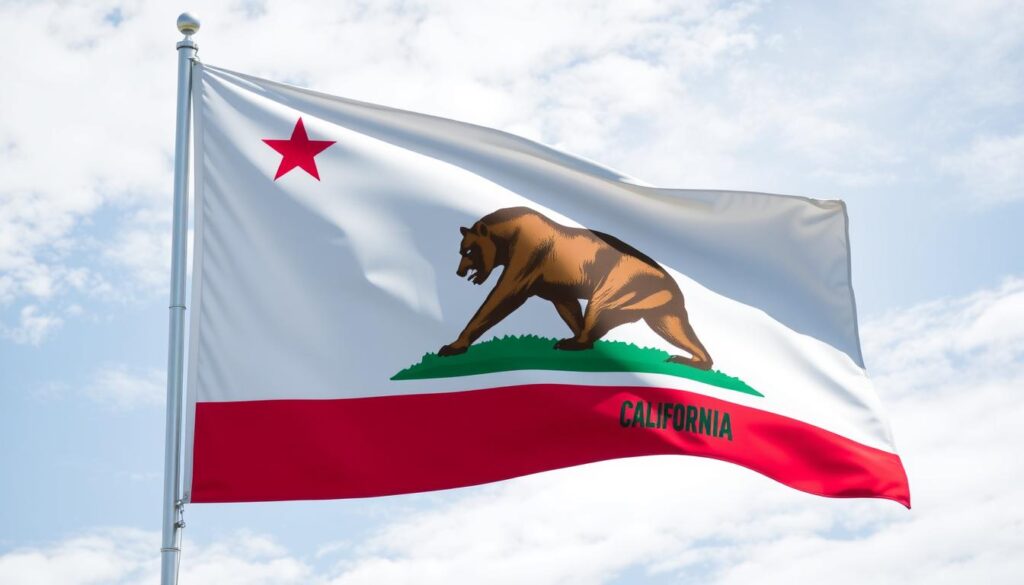Gun Laws in California
[todaysdate]
California has strict Gun Laws in California, with mandatory registration and background checks.
Firearm owners must meet eligibility criteria, including age and residency requirements.
Certain firearms, such as short-barreled rifles and undetectable firearms, are prohibited. Concealed carry permits are available for qualified individuals.
Violating gun laws can result in severe penalties, including imprisonment and fines.
As California’s gun laws are complex and multifaceted, understanding the specifics of these regulations is vital for ensuring compliance and traversing the state’s firearm landscape.
Further examination reveals additional nuances and details.
Key Takeaways
- Firearm registration is mandatory in California.
- Background checks are required for all gun purchases.
- Concealed carry permits have age and training requirements.
- Certain firearms are prohibited or restricted in California.
- Violating gun laws can result in severe penalties.
Gun Ownership Regulations
Gun Laws in California
Several key regulations govern gun ownership in California, primarily focusing on verifying that firearms are acquired and possessed responsibly. These gun regulations are designed to promote public safety and responsible gun ownership.
Firearm registration is a vital aspect of these regulations, as all firearms are registered by a licensed dealer during the sale, and a thorough registry of firearms and their owners is maintained.
The state database retains background checks, fingerprints, and personal information, along with firearm serial numbers.
To possess a firearm, individuals must meet certain eligibility criteria, including a minimum age requirement, residency, and valid identification. Additionally, they must obtain a Firearm Safety Certificate and undergo a background check.
The process of purchasing a firearm in California also involves a 10-day waiting period, during which time the buyer must wait before taking possession of the firearm, and a background check is conducted to ensure the buyer’s eligibility to own a firearm.
These regulations aim to guarantee that gun owners are responsible and law-abiding citizens who prioritize the safety of themselves and those around them.
By adhering to these regulations, individuals can exercise their right to gun ownership while contributing to a safer community. California’s gun laws are often compared to other states with strict regulations, and are considered to be among the most restrictive in the country.
Prohibited Firearms
Within the context of California’s gun laws, certain types of firearms and ammunition are strictly prohibited, highlighting the state’s commitment to prioritizing public safety. The state has established specific firearm restrictions, outlawing short-barreled rifles and shotguns, undetectable firearms, and disguised firearms, such as cane guns and pen guns.
These illegal weapons pose a significant threat to public safety, and their prohibition is a vital aspect of California’s gun laws.
The prohibition also extends to unconventional pistols, assault weapons, and certain types of ammunition, including those containing flechette darts and explosive agents. Large capacity magazines and tracer ammunition are also subject to regulation.
By enforcing these firearm restrictions, California aims to prevent the misuse of illegal weapons and guarantee a safer environment for its residents. The penalties for possessing prohibited firearms are severe, ranging from misdemeanor to felony charges, and can result in imprisonment and hefty fines, underscoring the state’s commitment to enforcing its gun laws and protecting its communities.
The state’s gun control measures are guided by the principles of the Second Amendment, which balances the right to bear arms with the need for public safety.
Violating the law can lead to a wobbler offense, which can be charged as either a misdemeanor or a felony, depending on the circumstances of the case and the individual’s criminal history.
Concealed Carry Permits
California’s gun laws also address the issuance of concealed carry permits, which allow qualified individuals to carry firearms in public for personal protection.
The permit process involves submitting an application to the local police office, providing required documents such as proof of residency and a CCW training certificate, and completing a personal interview.
Carry laws in California dictate that applicants must meet specific eligibility requirements, including being at least 21 years old and completing an approved firearms training class.
The application process includes being fingerprinted and photographed, with the application being processed within 90 days, and during this time, the Sheriff’s department will conduct a thorough background check to ensure the applicant’s suitability for a concealed carry permit.
To maintain a concealed carry permit, individuals must renew their license by submitting proof of completion of an 8-hour CCW renewal course.
Modifications to the permit, such as adding or changing a weapon, also require proof of qualification with an approved instructor.
By following the permit process and adhering to carry laws, individuals can exercise their right to carry firearms for personal protection while contributing to a safe and responsible community, and it is essential to understand firearm regulations to ensure public safety.
This process guarantees that only qualified individuals are authorized to carry concealed firearms.
Age Requirements
Under California law, specific age requirements govern the purchase, possession, and transfer of firearms, reflecting a multifaceted approach to regulating access to guns.
The firearm laws in California dictate that individuals must be at least 21 years old to purchase handguns and 18 years old to purchase rifles and shotguns, with certain exceptions.
These age restrictions are designed to guarantee that firearms are handled responsibly and safely. Firearm laws, including age restrictions, play a vital role in maintaining public safety and preventing unauthorized access to guns.
The state’s age requirements for possession and transfer of firearms are also strictly enforced, with prohibition on sales to minors under 21 and specific exemptions for licensed hunters and members of the Armed Forces or law enforcement.
The legislation aims to reduce the risk of accidents and crimes involving firearms by implementing age limits on the purchase and possession of guns, ensuring that only eligible individuals can access them.
This approach is consistent with the Second Amendment principles, which emphasize the importance of responsible gun ownership and the need for regulations to ensure public safety.
Firearm Safety
In California, firearm safety is reinforced through the requirement of a Firearm Safety Certificate, which is mandatory for the sale, delivery, loan, or transfer of any firearm.
To obtain this certificate, individuals must pay a $25 fee and pass a written test proctored by a DOJ Certified Instructor, demonstrating their understanding of safe handling and use practices.
The certification process emphasizes the importance of Mandatory Training, ensuring that firearm owners and users are equipped with the knowledge necessary to handle firearms responsibly and safely, and understand the value of proper holster maintenance to prevent accidents.
Firearm owners must also comply with laws regarding secure storage to prevent accidents and unauthorized access.
Safety Certificate
Obtaining a Firearm Safety Certificate (FSC) is a crucial step for individuals seeking to purchase or acquire firearms in California, as it demonstrates their understanding of firearm safety and handling.
This certificate is a prerequisite for firearm registration and is often conducted in conjunction with background checks. To belong to the community of responsible firearm owners, individuals must meet certain requirements.
Some key aspects of the FSC include:
- Passing a written test with a score of at least 75%
- Completing a background check at the point of sale
- Providing required information, such as a unique identification number and driver’s license number
Mandatory Training
California’s firearm laws mandate that individuals complete a training program, known as the Firearm Safety Certificate, to guarantee they possess a thorough understanding of firearm safety and handling. This training is essential for ensuring that gun owners can safely operate and handle firearms.
The Firearm Safety Certificate program is a 30-question true/false and multiple-choice test that covers basic firearms laws and firearm handling. To administer this test, the state has authorized training providers, typically located at firearms dealerships, who are certified by the Department of Justice.
These training providers play a vital role in educating individuals on responsible firearm handling and safety practices. By completing the training program, individuals demonstrate their commitment to safety and responsible gun ownership, which is essential for building a sense of community and belonging among gun owners.
The training program is designed to be accessible, with a cost of $25, including two test attempts if necessary. Overall, the Mandatory Training requirement is an important aspect of California’s gun laws, promoting a culture of safety and responsibility among gun owners.
Legal Consequences
The legal consequences of violating California’s gun laws can be severe, with penalties ranging from imprisonment to fines and probation.
Gun penalties can result in significant jail time, with misdemeanor charges potentially leading to up to 1 year in county jail and felony charges resulting in 16 months to 3 years in state prison.
The specific penalties imposed depend on the nature of the offense, with factors such as prior convictions, gang involvement, and the use of a firearm during a crime potentially leading to enhanced penalties.
Gun Penalties
Violating gun laws in California can result in severe penalties, including imprisonment and fines, thereby emphasizing the importance of understanding and complying with these regulations.
Firearm crimes and gun violence are serious offenses that can have long-lasting consequences for individuals and communities. To avoid such penalties, it is vital to be aware of the laws and regulations surrounding gun ownership and use.
Some notable penalties for gun crimes in California include:
- Up to 1 year in county jail and fines up to $1,000 for misdemeanor offenses
- 16 months to 3 years in state prison for felony offenses
- Additional penalties such as probation, loss of gun ownership rights, and a permanent criminal record
Understanding these penalties can help individuals make informed decisions and avoid engaging in firearm crimes that contribute to gun violence.
Jail Time
Under current laws, individuals convicted of gun crimes in California face significant jail time, with sentences ranging from up to 1 year in county jail for misdemeanor offenses to 16 months to 3 years in state prison for felony offenses.
For misdemeanor charges, such as carrying a concealed weapon without a permit, the maximum sentence is up to 1 year in county jail, along with fines of up to $1,000.
In contrast, felony charges, like unlawful possession of a firearm by a felon, can result in prison sentences of 16 months to 3 years.
Firearm offenses can lead to substantial prison sentences, especially when aggravating factors are present.
Sentencing enhancements, such as 10-year, 20-year, or 25-year enhancements for using or firing a gun during a serious felony, can substantially increase the overall sentence length.
These enhancements apply to serious felonies, including murder, rape, and robbery, making the consequences of firearm offenses severe.
Frequently Asked Questions
Can Tourists Buy Guns in California?
Tourists cannot purchase firearms due to strict firearm regulations, limiting gun ownership to residents, with no exceptions for non-resident buyers under California’s stringent laws governing firearms acquisition.
Are Gun Shows Allowed in California?
Like a well-oiled machine, gun shows operate in California with strict gun regulation, including background checks, ensuring a safe environment for attendees to explore firearms and accessories.
Can I Lend My Gun to a Friend?
Lending a gun to a friend requires ensuring proper gun storage and emphasizing firearm safety, promoting a sense of responsibility and community among individuals who share interests and values.
Are Online Gun Purchases Legal?
Paradoxically, online gun purchases are permissible, subject to background checks and age restrictions, promoting a sense of community among lawful owners.
Can I Carry a Gun in My Car?
Carrying a gun in your car requires compliance to road rules, prioritizing car safety, and responsible firearms storage to guarantee a secure driving environment for all passengers and fellow road users always.
Conclusion
California’s complex system of gun control laws draws careful distinctions for carrying concealed firearms.
Strict regulations ensure public safety standards.
Gun violence leads to deaths and fuels intense frustration over firearm-related crimes.
Clear and careful laws promote public safety and reduce dangerous outcomes.
Gun Laws in California, targeted enforcement, shapes how citizens behave.

